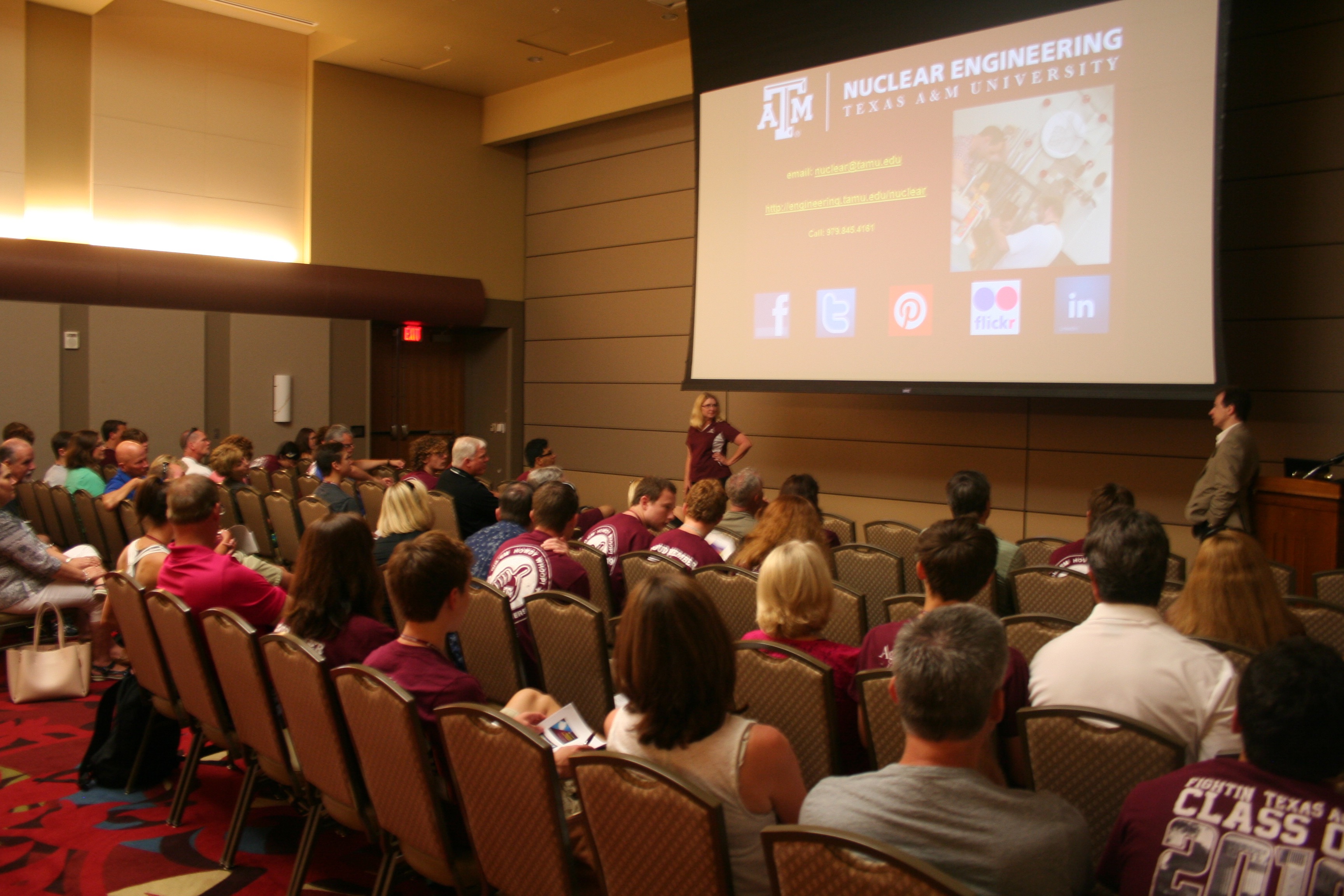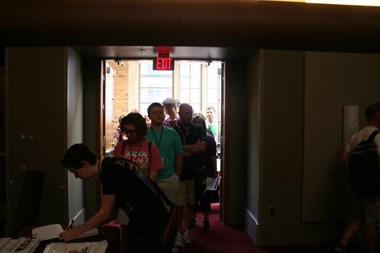
The Department of Nuclear Engineering at Texas A&M University began its new student conference orientations for those considering a specialization in nuclear engineering. The department sessions allow students a general overview of the program environment and other opportunities available to them in an informal setting.
The orientations were led by Dr. Pavel Tsvetkov, associate professor and undergraduate advisor, who discussed an outline of the four-year program and the employment and research opportunities students can choose to pursue. Tsvetkov also introduced students to the overall impact of nuclear engineering in the development of national defense applications, medical technologies and practical energy solutions.
 In addition to the morning sessions, each conference also holds faculty and current student panels for the incoming freshmen, all of whom will be enrolled in general engineering classes this fall. While the students will not be able to enroll in nuclear engineering until their sophomore year, the sessions provide an avenue for aspiring students to show their interest in the department. When discussing the many advantages of pursuing a nuclear engineering degree at Texas A&M, Tsvetkov cited the size and variety within the department as being two of its most attractive factors.
In addition to the morning sessions, each conference also holds faculty and current student panels for the incoming freshmen, all of whom will be enrolled in general engineering classes this fall. While the students will not be able to enroll in nuclear engineering until their sophomore year, the sessions provide an avenue for aspiring students to show their interest in the department. When discussing the many advantages of pursuing a nuclear engineering degree at Texas A&M, Tsvetkov cited the size and variety within the department as being two of its most attractive factors.
“The department is very diverse,” said Tsvetkov. “We are also a small department in relation to others in engineering, but this allows us to facilitate as close of a connection as possible with every student.”
Along with Tsvetkov, undergraduate advisor Marna Stepan discussed the opportunities that coursework in nuclear engineering could provide students. Stepan also stressed that time management skills would be a necessity for the incoming students, highlighting the academically challenging but rewarding nature of the program.
“Everyone wants you to transition from a successful high school student to a successful college student,” Stepan said. “When you come to a major four-year university it is very different. Your time management skills are very important for you to succeed, especially in an engineering major.”
After the presentation Tsvetkov answered questions from the incoming freshmen about the different opportunities within the two disciplines that the department offers — nuclear engineering and radiological health. Tsvetkov also promoted the applicability of a nuclear engineering degree to a variety of different fields and its foundation in the disciplines of science, technology and mathematics to demonstrate its significant value.
“Nuclear engineering is unique,” Tsvetkov said. “Its shows you how to apply all STEM fields together. We are focused on taking advantage of all those areas and teaching students how to apply those principles to certain engineering objectives.”